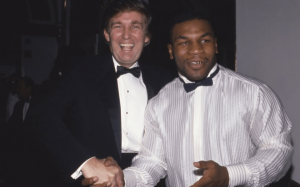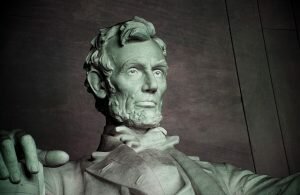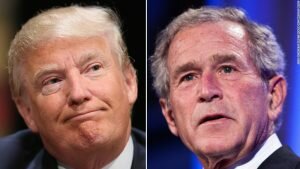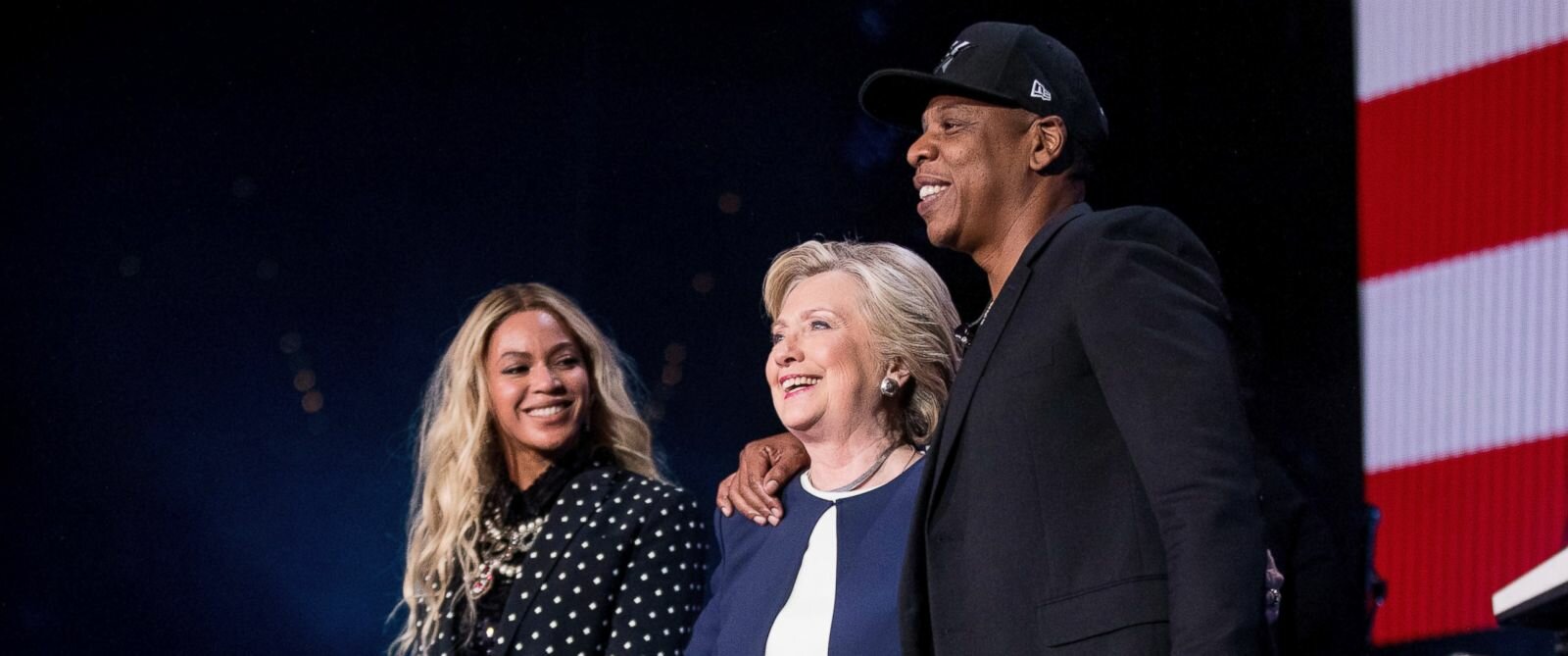Schadenfreude in American Politics
“Normally, we are ambivalent about taking pleasure in the suffering of others. Even if we gain from the suffering, we pull the long face. But misfortunes that seem so obviously deserved liberate our pleasure. Who can suppress the delectable blend of schadenfreude and righteous gloating?”
Richard Smith, Ph.D., writing for Psychology Today
Schadenfreude is a German word which describes the pleasure derived from the deserving pain or misfortune of others. There is no equivalent word in English, but it’s not hard to find examples of it.
Just think of the long-running TV show, America’s Funniest Home videos, or its web-based equivalent, FailArmy. Civilized though we are, most of us can’t help but take some small pleasure in comedic mishaps which inflict a bit (or a lot) of pain on an unwitting victim.
If you have any doubt that the feeling is universal, just look at the number of views on any given FailArmy video. Schadenfreude is a powerful thing. Could it even be strong enough to influence voting habits?
Years ago, social psychologist David Combs studied schadenfreude in the reactions of Democrats and Republics to certain events. He showed his subjects a range of events from elections in the early aughts. Some of these events were “inherently funny”, like George W. Bush falling off a bicycle or John Kerry looking silly in an over-sized space suit — the kind of stuff you’d see on America’s Funniest.
Not surprisingly, Democrats found the Bush mishap funnier than Republicans did and vice versa. The stronger the test subjects identified with one party or the other, the greater the degree of pleasure they got from the opposing figure’s misfortune. In other words, political affiliation increased their schadenfreude.
A writer for the Oxford University politics blog, Oxpol, theorizes that Donald Trump owes some of his success to the effects of schadenfreude. It’s a compelling argument. The overarching theme of the 2016 presidential election was the loss of trust in condescending, out-of-touch American political and media elites. Trump, with his lack of experience and aloofness towards party protocols, seemed to embody this feeling.
Millions of Americans are still hurting from the economic recession in 2010, fuelling anxieties about immigration and globalization. Trump promised to return fire on those who voters blamed for their own suffering. Mexico would pay for the wall. China would get hit with tariffs in return for supposed trade-cheating. American companies who outsourced jobs would face consequences.
His interactions with the media had the same flare. Trump’s ability to send the reporters into a flurry of fact-checking and disdain showed voters he could get back at the shadowy media elitists.
Trump also mocked and belittled his fellow candidates during the Republican primary, to the pleasure of Republicans and Democrats alike. He took the political elite down a peg. Maureen Dowd, a democrat and writer for the New York Times, wrote at the time that, “The most enjoyable thing about the Trump phenomenon has been watching him make monkeys out of a lot of people who had it coming.”
Another writer, Isaac Chotner of Slate, saw the schadenfreude as well. But he was wary to indulge in this pleasure of suffering. He warned, “Those liberals who find themselves rooting for Trump, in the hope that his continued success will only further damage the GOP, are playing with fire—and putting their self-satisfaction ahead of the interests of the country.”
Good call, Isaac.
Is it Wrong to Laugh at American Politics?
Fox News Anchor Shepherd Smith once said American politics is weird and creepy. He’s right. And it’s not just weird — it’s dark, ironic, exhilarating.
Isn’t that why it attracts the chatter and attention of the whole world over? Yes, it’s true that the United States is the Earth’s foremost economic and military powerhouse. This is reason enough for the rest of the world to keep an eye on it, as a mouse watches a cat from its hiding place.
But this isn’t the sole reason we watch. We don’t only visit the realm of the White House for a daily dose of political developments. We want to be moved. Perhaps more than ever, American politics is a fertile source of dark humour. I, for one, can’t get enough of it.
Does that make me a bad person?
American politics is funny, but it’s also very serious business. The real-world ramifications of every House vote, every press release, every hot-headed Tweet and quip are nothing to scoff at. While we sit behind our phones laughing and shaking our heads at the latest in political absurdity, that same absurdity may inflict grievous harm and suffering.
When the American government goofs, families lose their homes. Workers lose their health care. People lose their livelihoods. Some even lose their lives.
Even if we aren’t laughing at those who are suffering, the fact that we are in any position to laugh at all reveals the extent of our privilege.
I’ve been wondering about this since the vote last November. Like many of my ilk, my initial thought on President Donald Trump’s election was, “This is terrible, but it’ll be great for comedy.” It has been so. But since then, I’ve also watched friends and strangers go through such strife and heartache at the hands of the Comedy President.
I think this is what they call cognitive dissonance.
Recently, I found another perspective on this an article written by Steven Johnson for The Guardian. Johnson posed the same question I’ve asked myself: Is it wrong to laugh at Donald Trump? His answer is as follows:
I find the persistence of laughter to be heartening, as incongruous as it might seem. Incongruity is one of the fundamental forces in the universe of comedy: take two things that don’t usually belong together; throw them into the same sentence; hilarity ensues. Dark comedy in particular thrives in juxtaposing the solemn, the mortal, with the petty and the prurient. So it makes sense that we should find ourselves reaching for punchlines when we want to throw punches. When things are bleak, we lean on humor to fight back, to build bonds, to whittle away at the pedestals of the powerful.
Maybe dark times call for dark humour. And I have no intention to stop laughing — even if I wanted to, I don’t think I could. But I expect the dissonance will remain.
Trump vs Bush: The First 100 Days in Office
This week marks President Donald Trump’s 100th day in office. Though this is an arbitrary number, pundits and other observers are treating it as a milestone.
Much has been made of what President Trump has, or has not, accomplished during this period of time. The Boston Globe says his first 100 days have been “unlike any other.” Much has been made of his two failed anti-immigration measures, his diplomatic spills with Russia and North Korea, and his numerous week trips to Mar-a-Lago.
So are they right? Are Trump’s first 100 days in office really unlike those of any other president?
Various news outlets have compared President Trump to his most predecessor, Barack Obama. They do so with the benefit of hindsight. What I’d like to do instead is look at how the same media assessed a predecessor back then.
Let’s compare him to the previous Republican President, George W. Bush.
100 Days of George W. Bush
I’ll get this out of the way now: George Bush Junior’s hundredth day came on April 29, 2001. That’s five months before the defining event of his time in office. Obviously, the public’s perception of him would shift dramatically at that point.
Back in April of ’01, Bush was a different character. To start, ABC News noted that lawmakers on both sides of the aisle commended him as a man with a clear vision and a plan to get things done. He was noted as a great listener and a keen learner. Bush enjoyed a 62% approval rating.
This was surprising, given that George W. Bush’s election victory was mired with controversy, including accusations of tampering and interference with the vote counts. As president, one of his first tasks was to escaping the shadow of the Florida recount and make his mark on the office. He largely succeeded. Sound familiar?
Perhaps most surprisingly, and somewhat ironic, is the call for Bush to become more hands-on in his role as President. We don’t normally think of George W. Bush as one who avoided the spotlight during his presidency, but he did just that in his first hundred days.
Does he have anything in common with Trump’s first 100? Yes. Bush had a minor diplomatic flap with China over the Hainan Island Incident, where an American fight jet collided with a Chinese jet and made an emergency landing on the island (the Chinese pilot did not survive.) Bush also ordered attacks on Iraq to enforce a no-fly zone, which commentators have likened to President Trump’s airstrike on Syria.
Like Trump, Bush also had a hard time putting his election promises into action. His omnibus tax cut legislation was still struggling through Congress, and he hadn’t turned his attention to other big issues like Medicare and social security.
Did Celebrity Endorsements Matter in the 2016 Election?
The stars aligned for Hillary Clinton.
In her second shot at the Oval Office, Clinton boasted an incredible roster of actors, artists, TV personalities, and sports stars. And her multi-million dollar campaign leveraged these connections in every possible way.
Clinton raffled off tickets to join Jay Z for dinner. Lady Gaga and Katy Perry performed at her rallies. Joss Whedon directed a pro-Democratic PSA starring Robert Downey Jr. and Scarlett Johansson. On election day, Beyonce urged followers to vote for Clinton in a video that drew over 2 million views before the polls closed.
Meanwhile, on the other side of the aisle, the bench was far from full. Nor was it empty – Donald Trump won over the likes of Charlie Sheen, Kid Rock, Tim Allen, Tom Brady, and Kirstie Allie. But it goes without saying that their combined celebrity clout doesn’t match that of even one of the above Clinton cohorts.
Celebrity endorsements are not new in American politics. But the 2016 presidential election saw more star power all the previous races combined – and that’s including President Obama’s inaugural run in 2008.
Hollywood came out for Clinton. Voters didn’t. So, what happened?
Celebrity endorsements have long played a role in the presidential race. President Warren Harding is often credited with earning the very first celebrity endorsement in American history back in 1920. When actor Al Jolson recorded a catchy campaign tune for Harding, it helped propel him to a safe 60% victory.
The phenomenon seemed to peak in 2008, when Barack Obama gained the blessings of numerous actors and artists, including George Clooney, will.i.am, Brad Pitt, and Samuel L. Jackson. His most important endorsement came from Oprah Winfrey. One study found that Oprah alone increased voter participation by over a million votes.
Why do celebrity endorsements work? Because people consider celebrities more credible and trustworthy than politicians. Less informed voters are more likely to vote for someone with a celebrity endorsement. And young people are more likely to seek out information and participate when celebrities Tweet and post about politics.
There are a number of reasons why it was less effective this time around.
To start, most of Clinton’s celebrities appealed to the voters aged 18 to 24, the demographic that is least likely to get out and vote. Except for 2008 and 1992 (Obama’s first run and the first Rock the Vote campaign respectively), youth participation has declined each year since 1964.
Diminishing returns are another factor. Celebrity endorsements are not novel. Oprah broke her career-long silence on presidential politics when she endorsed Obama in 2008. Her endorsement of Clinton in 2016 did not have the same impact.
Others have pointed to growing cynicism towards celebrities. People know that their interests differ from those of millionaire actors and actresses. There’s a growing perception that so-called “Hollywood Elites” don’t understand or care for the common voter. And people simply don’t trust celebrities like they used to, especially in an age when the Twitterverse waits to pounce on celebrities for any political misstep.
But the biggest factor of all is simply the fact of her opponent.
Star power was baked in to the Trump campaign from day one. Donald Trump seamlessly transferred his TV persona to his political campaign. People knew who he was, what he stood for, and what to expect from him. He cut out the middleman when it came to celebrity endorsements. People didn’t go to Trump rallies to check out Katy Perry – they went to see the man himself.
Trump didn’t need celebrities to get his name out there. He was a walking endorsement himself.
Celebrities can help put the spotlight on an otherwise obscure candidate. In a race between two ordinary politicians, celebrities can help one outshine the other. 2016 was not that kind of race. President Trump stood out inherently, and no number of celebrity endorsements, followers, or viral PSAs could level the playing field.



